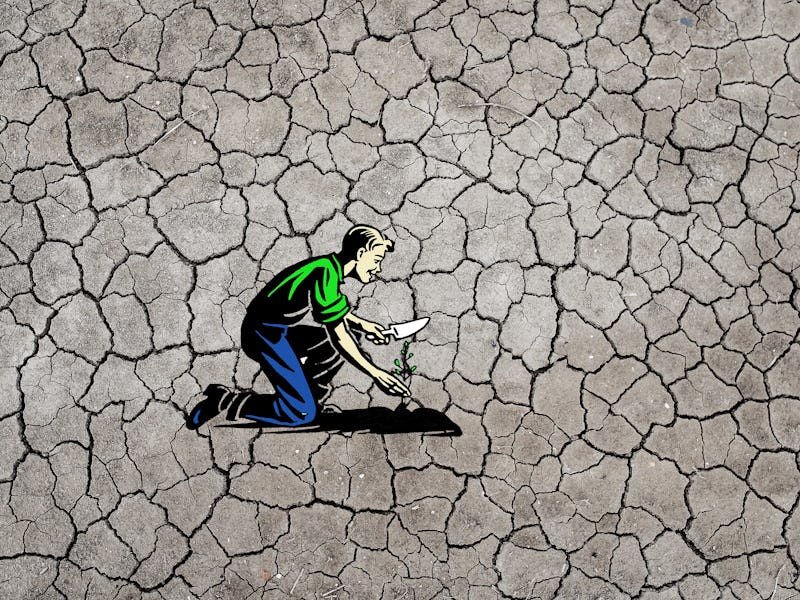Soil props up entire ecosystems, and humans are ruining it
The climate effects of humans are screwing with a lynchpin of global food supplies.

Climate change is defined by more than just rising temperatures and ever-encroaching sea levels; the myriad factors at play are complicated, and — to make matters even more complex — they often interact with one another. Let’s take soil, for instance.
Soil is easy to overlook, but we depend on it for a lot. It props up the health of entire ecosystems and, to some extent, the human population. Soil may not be very exciting to you or I, but it is a forgotten victim of climate change — particularly the man-made kind.
In fact, multiple human-driven factors affect the health of soil, finds a new study. These different factors increase the number of changes in soil ecosystems — and make predictions about the future health of soils more difficult. But what the study does offer is a “blueprint” for studying how climate change across the globe drives changes in soil, and, relatedly, how that impacts the Earth as a whole.
The study was published this week in the journal Science.
How humans drive changes in soil
The researchers looked at ten factors influencing soil, including temperature, resource availability, chemical toxins and compounds, and other agents of physical change — like microplastics.
The study’s design is particularly notable. Past studies tend to look at just one factor influencing soil — less than 20 percent have looked at two or more. But changes to the climate don’t happen individually; they are often concurrent, and each has an impact on the other. Paying attention to several factors at once gives a more clear picture of current changes and those to come.
While most soil systems don’t experience all of these pressures at once, they are likely to experience more than one at any given time. Microplastics are nearly ubiquitous in our environment. And changes in temperature and moisture aren’t generally limited to one specific geographical area.
Understanding soils is important because they “provide a range of ecosystem functions,” the researchers say. Soils store carbon, and they are central to agriculture and sustainable land management. We depend on them for our food.
Soil surprises
Soil systems where many of these anthropogenic factors are at work also have a greater number of “ecological surprises,” the researchers say. Take the amount of water the soil repels. That influences soil runoff, a major environmental concern. In single-factor experiments, soil runoff barely changed as a result of any one environmental pressure. But it was greatly affected when multiple factors are accounted for.
That makes predicting the effects of global climate change on soils more difficult, the researchers say. But by forecasting the direction of change and accepting that there are going to be some things we just can’t predict will, ultimately, help us do better in the future — and hopefully save our soils.
Abstract: Soils underpin terrestrial ecosystem functions, but they face numerous anthropogenic pressures. Despite their crucial ecological role, we know little about how soils react to more than two environmental factors at a time. Here, we show experimentally that increasing the number of simultaneous global change factors (up to 10) caused increasing directional changes in soil properties, soil processes, and microbial communities, though there was greater uncertainty in predicting the magnitude of change. Our study provides a blueprint for addressing multifactor change with an efficient, broadly applicable experimental design for studying the impacts of global environmental change.